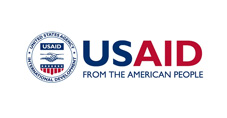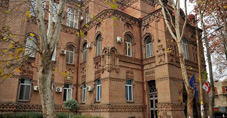USAID/Georgia Announces New Partnership with Ministry of Education, Science, Culture, and Sports
Wednesday, January 29


The new program will strengthen Georgia’s teacher training institutions, thereby supporting primary schools to design and deliver interactive curricula. Student-centered teaching methods emphasize students’ literacy, numeracy, problem solving, and critical thinking skills. By supporting schools to better meet the needs of girls, ethnic minorities, and children with disabilities, the program will foster a more inclusive society where young people from all backgrounds have opportunities to contribute to Georgia’s social and economic development.
Achieving Student-Centered Education for a New Tomorrow will advance the following specific objectives: 1) implement student-centered curricula in Georgia’s primary education institutions; 2) build the capacity of teacher training programs at universities to ensure that teachers and administrators acquire state-of-the-art professional skills; and 3) promote the development of education policies using evidence-based approaches. USAID will coordinate its efforts with the World Bank and other donors supporting the Government of Georgia’s education reform.
As the leading development agency of the U.S. government, USAID supports Georgia to build the capacity to finance, plan, and implement its own solutions to development challenges. USAID has worked in Georgia since 1992, supporting the country’s transformation into a developing democracy that is increasingly integrated into Western political, security, and economic institutions. More than 30 USAID programs stimulate inclusive economic growth, develop democratic governance, enhance energy security, and foster social inclusion.
The United States Agency for International Development is an independent agency of the United States federal government that is primarily responsible for administering civilian foreign aid and development assistance.
USAID plans its work in each country around an individual country development program managed by a resident office called a "mission." The USAID mission and its U.S. staff are guests in the country, with a status that is usually defined by a "framework bilateral agreement" between the USG and the host government. Framework bilaterals give the mission and its U.S. staff privileges similar to (but not necessarily the same as) those accorded to the U.S. embassy and diplomats by the Vienna Convention on Diplomatic Relations of 1961.
